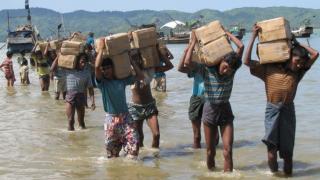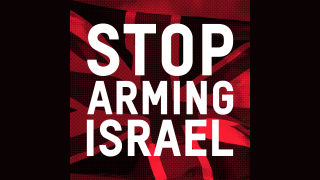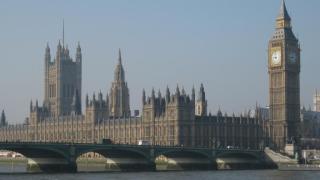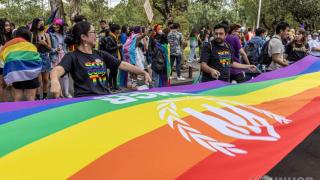
Part of our regular series of background briefings on the UN in the news.
Today we grant the Sir Brian Urquhart Award for Distinguished Service to the UN to Andrew Gilmour - Assistant Secretary-General for Human Rights.
Mr Gilmour heads up OHCHR’s Office in New York and has served the UN since 1989, including in Afghanistan-Pakistan, Kosovo, Palestine and West Africa. He was Deputy Special Representative of the Secretary-General in Iraq and South Sudan, and Representative of the Secretary-General in Belgrade. He was also Political Director in the Executive Office of the Secretary-General (2012-16), during which time Mr Gilmour was responsible for implementing the Human Rights Up Front initiative.
The following briefing looks in detail at the Human Rights up Front initiative and where it is headed.
What is Human Rights up Front?
Human Rights up Front (or HRuF) is an internal campaign within the United Nations, launched by then Secretary-General Ban Ki-moon to ensure that human rights approaches to prevention of atrocities and serious rights violations are an integral part of the UN's work in any given country. It consists of three levels of action: country, regional, and senior management
- At the country level the this takes the form of a "common country-level analysis" which ensures that the UN offices within a country work together to periodically conduct a risk analysis of the likelihood of atrocities taking place in the country. A requirement is then created to adjust the work in the country the UN does in order to mitigate this risk and, if the risk is significant, to create a country-level strategy to manage that risk. So far it appears there have only been a few pilots of these analyses
- At the regional level, regional divisions at UNHQ conduct regular scannings (regional monthly reviews - although they sometimes happen less frequently) of the warning signs of atrocity crimes in all countries. Serious emerging situations can thereby be escalated to the UN's senior leadership in a timely fashion, and UN country teams that need additional resources and advice can receive it
- At the senior management level, the heads of relevant agencies at the level of Assistant Secretary-General now meet on a monthly basis in "deputies committees" to consider emerging threats of atrocities and, if necessary, refer matters to the Executive Committee, where the Secretary-General and his most senior advisors meet weekly
On a more conceptual level, the purpose of HRuF is to breakdown the silos that exist between the UN's generally rather separate approaches to its three core tasks of supporting development, the maintenance of peace and security, and the defence of human rights. It encourages work between agencies and offices working in different parts of the UN system, and multidisciplinary initiatives such as the UN's "peace and development advisors" who work to ensure closer integration of these objectives.
For more information you can read this article, or watch this video.
How did HRuF come about?
The UN has been accused of failing to prevent atrocity crimes on many occasions, and while often it has, unfairly, taken the blame for the inaction or absence of political leadership from member states, there have certainly been occasions in which the Organisation should have done more than it did. In the 1990s, particularly in Bosnia and Rwanda, the UN was criticized for its peacekeeping forces' adherence to the letter of mandates which did not allow them to protect civilians. In consequence the UN adopted the doctrine of "Protection of Civilians" and the controversial notion of "robustness".
More recently, the criticism has been that the UN has kept quiet about human rights and security concerns in states where it operated for fear of losing the access it required for its development work. This criticism was repeatedly raised in response to the UN's inaction as tens of thousands of civilians were killed and disappeared in the final years of Sri Lanka's civil war in 2008-9. An internal review into UN failings in Sri Lanka, the "Petrie report", concluded that the United Nations system failed to meet its responsibilities and found that:
"many senior UN staff did not perceive the prevention of killing of civilians as their responsibility … and agency and department heads at UN [headquarters] were not instructing them otherwise"
While the report provoked a backlash inside some UN agencies, Secretary-General Ban Ki-moon accepted the report in its entirety and established HRuF as a way of implementing its recommendations.
Has it worked?
There is a perception that the UN's response to situations where there is a risk of atrocities occurring is stronger as a result of HRuF - at least in terms of its efficiency if not perhaps its results. Nevertheless, there is still a long way to go. It was both tragic and dispiriting to see the UN's reaction to atrocities committed in Rakhine State in Myanmar in 2017 repeat many of the same mistakes highlighted in the Petrie report. The Secretary-General's internal review into these failures is eerily reminiscient of the Petrie report.
In evidence to a parliamentary inquiry, UNA-UK made the argument that this is because the problems are structural, and stem from the:
"considerable resource-driven bias of the UN system towards its developmental work, to the detriment of the human rights and peace and security ‘pillars’. The consequence is that the ability to speak out on rights violations and demand early intervention to prevent atrocity crimes is limited by the need to negotiate access for humanitarian work and maintain good relations for the sake of effective development."
In this context we commended the UN reforms proposed by Secretary-General Guterres which we hoped would shift the centre of gravity of the UN's work further towards its peace and security and human rights "pillars".
What is the status of these reforms?
The reforms were unpopular with some UN member states, some of whom have an aversion to what they perceive as human rights mechanism's erosion of national sovereignty. Many states find development to be more politically palatable than attempts to improve peace and security. Negotiation and consultation with member states therefore led to a series of often complex compromises. The upshot of this was:
- The longstanding request of human rights organisations and activists including UNA-UK that the crucial role of "Resident Coordinator" (the lead UN official in any given country) be moved from the development focussed UN Development Programme (UNDP) to the more politically minded UN Secretariat was finally granted. However, UNDP are still guaranteed an influential role in this process through what is now called its “integrator function” as the largest and frequently leading UN organisation in most countries, and the repository of institutional knowledge on the Resident Coordinator system
- Resident Coordinators are no longer line managed by UNDP but are not directly managed by the Secretariat either. Instead they answer to the UN Sustainable Development Group - a group chaired by the Deputy Secretary-General but where UNDP play a significant convening role
- Resident Coordinators are now funded from a "special purpose trust fund" raised through a complicated mix of voluntary contributions from UN member states, a 1% levy on donations to UN agencies, and a doubling of the costs associated with an institution being associated with the UN development system. The UN's new funding compact should hopefully provide greater clarity and simplicity.
These reforms should give the UN system greater strength and independence, but whether this will allow the UN's officers in the field to provide the bold leadership and flexibility needed to truly put human rights up front remains to be seen. Further, while we hope these reforms may improve the functioning of HRuF in the future, the UN operates in countries where there are significant risks of atrocities right now, including: Sudan, Yemen, Myanmar, and Syria. Strong leadership from the Secretary-General and UN field officers on human rights, and the full implementation of HRuF are therefore absolutely vital.
It should be stressed, however, that primary responsibility for preventing atrocities does not lie with the UN, who have limited abilities to do so, but with member states themselves. In particular, primary responsibility lies with the Security Council, whose members have repeatedly failed to perform their duty in this regard, prompting calls for the General Assembly to take a much greater role in such circumstances.
Finally, while UNA-UK was pleased to see the Secretary-General stress the importance of human rights up front in recent statements, commentators have raised concerns that the initiative might be sidelined. Were this to happen, and were the UN to subsequently once again fail to act appropriately in the face of another atrocity, the consequences could be tragic and the blow to the UN's credibility could significantly weaken the Organisation.
Photo: Rohingya refugees unloading supplies at an IDP camp near Sittwe. Mathias Eick, EU/ECHO, Rakhine State, Myanmar/Burma, September 2013






